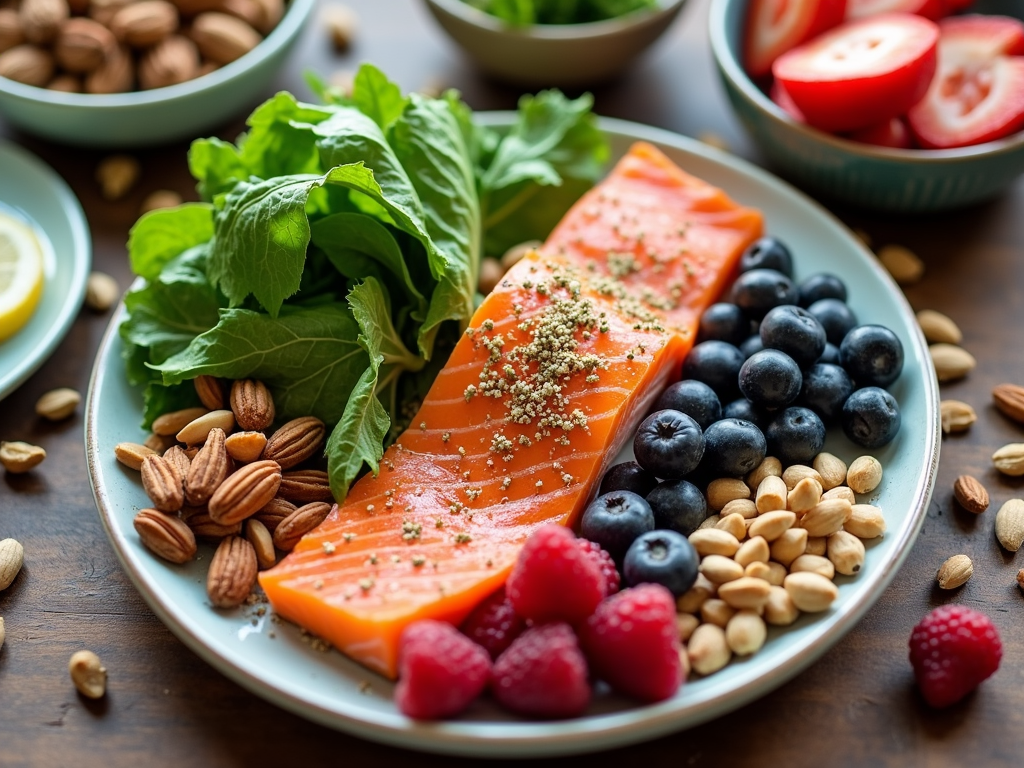Fertility Foods: What to Eat for a Healthy Pregnancy
March 13, 2025, 7:25 a.m.
Fertility foods play a crucial role in enhancing fertility and supporting a healthy pregnancy. This article explores what to eat, why it matters, and how to incorporate these foods into your diet for optimal reproductive health.
When it comes to fertility and pregnancy, what you eat can make a significant difference. Fertility foods are those that provide essential nutrients to boost reproductive health, increase the chances of conception, and support a healthy pregnancy. Whether you're trying to conceive naturally or undergoing fertility treatments, a balanced diet can be a powerful tool in your journey to parenthood.

A balanced diet is the foundation of good health, and this is especially true when it comes to fertility. For both men and women, the right nutrients can improve reproductive function, regulate hormones, and create a healthy environment for conception and pregnancy. Natural fertility treatments often emphasize diet as a key component, and for good reason. What you eat can influence everything from egg and sperm quality to the development of the fetus.
Certain nutrients are particularly important for fertility and pregnancy. Here's a list of key nutrients and their roles:
- Folic acid: Essential for preventing birth defects and supporting cell division.
- Iron: Helps prevent anemia and supports increased blood volume during pregnancy.
- Calcium: Crucial for bone development in the fetus.
- Omega-3 fatty acids: Support brain and eye development in the baby.
- Zinc: Important for sperm production and ovulation.
- Vitamin D: Aids in hormone regulation and immune function.
Including foods rich in these nutrients can significantly boost your fertility and prepare your body for a healthy pregnancy.

To make it easier, here's a table of fertility foods and their benefits:
| Food | Benefits |
|---|---|
| Leafy greens (spinach, kale) | Rich in folic acid and iron |
| Berries (blueberries, strawberries) | High in antioxidants and vitamin C |
| Nuts and seeds (almonds, chia seeds) | Provide healthy fats and zinc |
| Fatty fish (salmon, mackerel) | Excellent source of omega-3 fatty acids |
| Whole grains (quinoa, brown rice) | Offer complex carbs and fiber |
| Legumes (lentils, chickpeas) | Good source of protein and iron |
| Dairy products (yogurt, cheese) | Provide calcium and probiotics |
Incorporating these foods into your daily meals can help ensure you're getting the nutrients you need.
While focusing on what to eat, it's also important to know what to avoid. Certain foods can negatively impact fertility and should be limited or eliminated from your diet:
- Processed foods: High in unhealthy fats, sugars, and additives.
- Caffeine: Can interfere with hormone levels and reduce fertility.
- Alcohol: Can disrupt menstrual cycles and decrease sperm quality.
- High-mercury fish: Can be harmful to fetal development.
- Trans fats: Found in fried foods and baked goods, can increase inflammation.
Planning your meals can help you stay on track with your fertility diet. Here are some tips:
- Start with a balanced breakfast: Include protein, healthy fats, and whole grains.
- Snack smart: Choose nuts, fruits, or yogurt instead of processed snacks.
- Cook at home: Preparing meals yourself allows you to control ingredients and portions.
- Stay hydrated: Drink plenty of water throughout the day.
- Consider supplements: If you're not getting enough nutrients from food, talk to your doctor about supplements.
While a balanced diet should be your primary source of nutrients, supplements can be helpful in certain situations. For example, prenatal vitamins often include folic acid, iron, and other essential nutrients. However, it's important to consult with a healthcare professional before starting any supplements, as they can interact with medications or have side effects.

In conclusion, fertility foods are a vital part of preparing for a healthy pregnancy. By focusing on a balanced diet rich in essential nutrients, you can boost your fertility, support fetal development, and increase your chances of a successful pregnancy. Remember to include a variety of foods, avoid harmful substances, and consult with healthcare professionals for personalized advice. Your journey to parenthood starts with what you put on your plate.